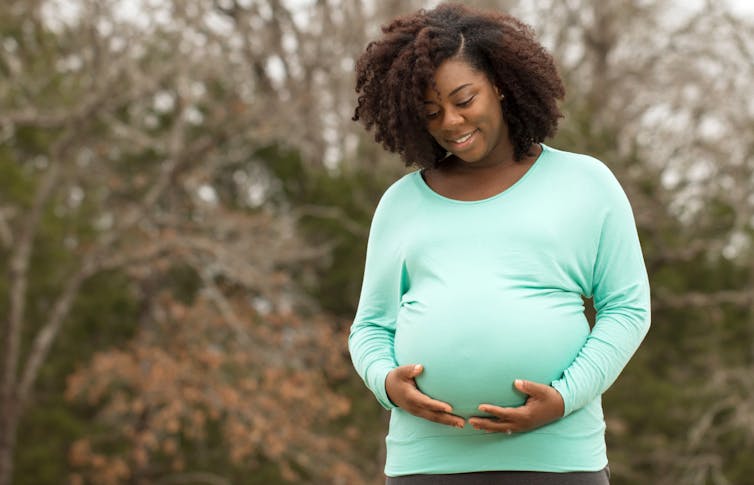Pregnant Women At Increased Risk Of Severe COVID – New Study


The Oasis Reporters
August 2, 2021

pixelheadphoto/Shutterstock
John Allotey, University of Birmingham
In previous respiratory virus outbreaks, such as Sars and Mers (both caused by coronaviruses), pregnant women infected with the virus were more likely to die or need intensive-care treatment than women of the same age who weren’t pregnant. And the risk of complication to them and their unborn child was higher compared with pregnant women without the virus.
Ever since SARS-CoV-2, the virus that causes COVID, was first identified, people have been worried about the effect the virus might have on pregnant and recently pregnant women and their babies. Including whether there is a risk the virus may infect the foetus from the mother.
The search for answers has led to a vast number of publications produced at a rapid pace. But the information provided soon becomes outdated, which makes it difficult for doctors and people who write guidelines to find the most up-to-date evidence.
For the past year, we have been running a study that involves a continuous systematic review of all published and unpublished reports on COVID in pregnancy to allow us to address relevant questions, such as, how common is COVID infection in pregnant women? What are the risk factors for COVID in pregnancy? And what are its complications?
Our study brings together an international team of researchers working in partnership with the World Health Organization at the WHO Collaborating Centre for Global Women’s Health in Birmingham. The results are updated at regular intervals to ensure current evidence is available to help shape healthcare policy and decision-making.
In the first version of our review of the evidence, published in the BMJ in September 2020, we identified 77 studies that provided data on about 13,000 pregnant and recently pregnant women with COVID. We found that one in ten pregnant women attending or admitted to hospital for any reason were diagnosed with COVID.
Pregnant women were less likely to report COVID symptoms of fever and muscle pain. However, they were more likely to have severe disease, be admitted to intensive care, and need invasive ventilation (intubation) compared with women of the same age who were not pregnant but had the virus.
Over 100 new studies
In our latest update, published in the BMJ, we added 115 studies, increasing the number of pregnant and recently pregnant women in the analysis to over 64,000. We found that pregnant women continue to be at increased risk of severe COVID.
In addition to our previous findings that obesity, high blood pressure, diabetes and increasing age are risk factors for severe COVID in pregnancy, we also identified non-white ethnicity as a risk factor for pregnant women developing severe COVID.
Compared to pregnant women without COVID, pregnant women with COVID were more likely to deliver preterm and have their babies admitted to the neonatal unit. But we need more data to confirm these findings.
There is also some evidence from our findings that pre-eclampsia (a condition that causes high blood pressure during pregnancy and after labour) and gestational diabetes may be linked with a severe form of the disease. As new data is made available, our research group can quickly integrate this data to further evaluate the link between pregnancy-specific risk factors and COVID outcomes.
Pregnant women and their families will need to be aware of the increased risk of severe COVID compared to non-pregnant women of the same age and encouraged to follow appropriate safety measures to reduce the risk of infection.
The additional risk in pregnancy posed by COVID must be considered when deciding whether to take the COVID vaccine if offered, especially by pregnant women with existing conditions and those of non-white ethnicity who are at an increased risk of severe disease.![]()
John Allotey, Lecturer in Epidemiology and Women’s Health, University of Birmingham
This article is republished from The Conversation under a Creative Commons license. Read the original article.












